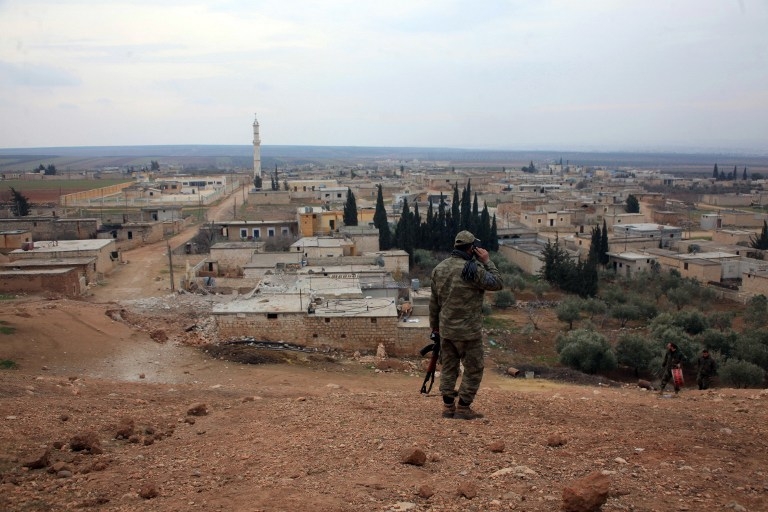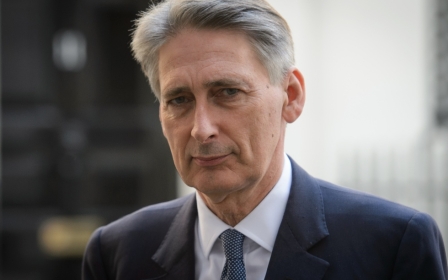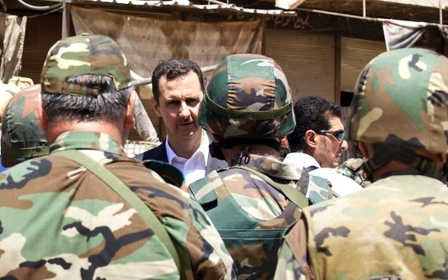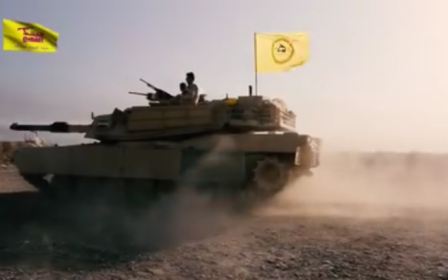Leaders agree to 'full cessation of hostilities' in Syria within week

World powers on Friday agreed to cease hostilities in war-racked Syria within a week and dramatically ramp up humanitarian access at talks in Munich aimed at reviving the struggling peace process.
The 17 countries agreed "to implement a nationwide cessation of hostilities to begin in a target of one week's time," said US Secretary of State John Kerry after extended talks co-hosted by Russian Foreign Minister Sergei Lavrov.
The International Syria Support Group also agreed "to accelerate and expand the delivery of humanitarian aid beginning immediately".
"Sustained delivery will begin this week, first to the areas where it is most urgently needed... and then to all the people in need throughout the country, particularly in the besieged and hard to reach areas," said Kerry.
The ambitious deal which "should apply to any party currently engaged in military or paramilitary hostilities" other than the Islamic State and the al-Qaeda affiliate al-Nusra Front has already come under criticism as Russia's bombing of Aleppo and what Moscow describes as terrorist targets are not part of the agreement.
During a press conference in the early hours of Friday, Russian Foreign Minister Sergei Lavrov said Moscow intends to continue its air strikes against IS and Nusra, a statement likely to be met with doubt as Russia has come under repeated accusations in recent months of hitting Syrian civilians and rebel fighters while claiming to strike the militant groups.
“Excluding Russian aerial attacks from a ceasefire is absurd," said James Sadri, director of the Syria Campaign, an advocacy group campaigning for the protection of Syrian civilians.
"This year Russia has become the number one killer of civilians in Syria, killing more than the Assad regime, al-Qaeda and Isis combined. If this proposed ceasefire doesn’t stop Russian warplanes from bombing hospitals and schools, then the US and others shouldn’t pretend it’s a ceasefire.”
Experts have pointed out that while the agreement should allow for humanitarian aid to reach besieged areas, it does not require parties to allow goods through their supply lines, meaning that Syrian, Russian and Iranian forces could still cut off rebel-held parts of Aleppo.
Questions also remain about whether the Syrian rebel fighting on the ground will support it.
George Sabra, a key member of the Syrian opposition's Higher Negotiations Committee, said on Friday that the rebels "are the ones who will decide on the implementation of this truce”.
HNC chief Riad Hijab also stressed on his Twitter account that the truce would be "conditional on the agreement of the factions of the southern and northern fronts" in Syria.
'Words on paper'
Peace talks collapsed earlier this month after troops loyal to Syrian President Bashar al-Assad, backed by Russian bombers and Iranian fighters, pressed an offensive on Aleppo as talks were ongoing.
The bombardments of Syria's largest city have forced at least 50,000 people to flee, left the opposition virtually encircled and killed an estimated 500 people since they began on 1 February - the latest hellish twist in a war that has claimed more than 260,000 lives, potentially as many as 470,000, according to a report released this week.
Kerry said talks between rebels and the government would resume as soon as possible, but warned that "what we have here are words on paper - what we need to see in the next few days are actions on the ground."
Host German Foreign Minister Frank-Walter Steinmeier agreed, adding that "whether this really is a breakthrough we will see in the next few days".
"When the whole world sees whether today's agreements are kept and implemented - by the Assad regime and the Syrian opposition, by Hezbollah and opposition militias, and also by Russia," he said.
The atmosphere going into the talks had been gloomy, with Russian Prime Minister Dmitry Medvedev even warning of a "new world war" if Gulf nations sent in troops to support the rebel opposition.
But the working group emerged with a document that showed a surprising level of cooperation between the key players, despite rising tensions over Moscow's bombing campaign.
Lavrov called "for direct contacts between the Russian and US military" in Syria and said negotiations on a political transition "have to start as soon as possible, without ultimatums and preconditions".
A UN task force, co-chaired by Russia and the US, will work over the coming week "to develop the modalities for a long-term, comprehensive and durable cessation of violence," Kerry said.
Another task force will oversee the delivery of aid, including pressure on Syria to open routes, since only around a dozen of 116 UN access requests have been granted.
"This working group will meet tomorrow in Geneva," said Kerry. "It will report weekly on progress, or lack thereof, to ensure consistent and timely and approved access moving forward."
Russia, US at odds
Russia and the US remain starkly at odds on several issues, particularly the fate of Assad.
The two traded accusations on Thursday, with the Pentagon claiming Russian air strikes had destroyed hospitals in Aleppo and denying Russian claims that US planes had struck the city.
Syria is a crucial ally and military staging post for Russia and Iran, while observers say Moscow has benefited from the chaos created by the war, particularly the refugee crisis in Europe.
Washington, reluctant to involve itself directly in another complex war after the quagmires of Afghanistan and Iraq, has also faced criticism for not doing enough to help the rebels.
Instead, it has sought to focus more on combating IS militants, which have taken over swathes of Syria and Iraq, than getting involved in the civil war between the government and opposition forces.
"The US has given up the idea of toppling Assad," said Camille Grand, of the Foundation for Strategic Research in Paris. "Kerry seems willing to accept pretty much anything to resolve the crisis."
The conflict has also strained relations between Turkey and its Western allies.
Turkish President Recep Tayyip Erdogan has slammed Washington's increasingly close alliance with the Kurdish militias in the fight against IS, saying it was turning the region into "a pool of blood".
Middle East Eye propose une couverture et une analyse indépendantes et incomparables du Moyen-Orient, de l’Afrique du Nord et d’autres régions du monde. Pour en savoir plus sur la reprise de ce contenu et les frais qui s’appliquent, veuillez remplir ce formulaire [en anglais]. Pour en savoir plus sur MEE, cliquez ici [en anglais].




